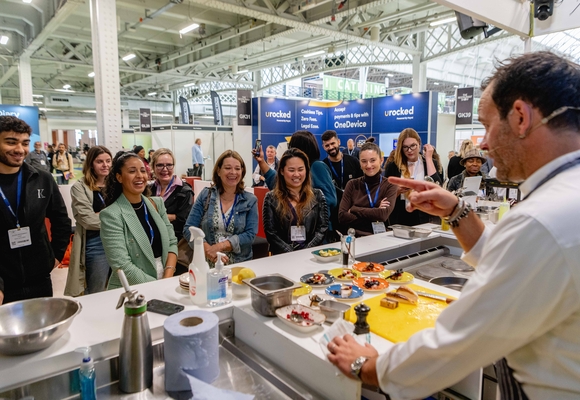This World Vegan Month a new website has been launched where students nationwide can rate their university’s vegan catering online. The UniVe website, launched by animal charity Humane Society International/UK, then ranks the universities so that students can compare institutions. HSI/UK launched UniVe to encourage British universities to improve their vegan catering to better serve their thousands of plant-based and reducetarian students after a new YouGov poll showed that 55% of students would like to see more plant-based options in their canteens. The poll also showed that almost half (47%) of students were either flexitarian, pescetarian, vegetarian or vegan and that 49% of students would like to eat less meat and/or dairy.
The UniVe website can be viewed here: https://www.univegan.org/
In addition to responding to increased demand, providing more and better vegan options will also make institutions more climate and environment-friendly. HSI/UK’s calculations show that if every university in the UK increased the number of vegan meals they served by just 10%, it would save around 33million kg of carbon dioxide (CO2) annually, the equivalent of driving an average petrol car around the globe 4,388 times!
HSI/UK plans to present the best performing universities with UniVe awards, and offer free plant-based culinary training to those not doing so well, in order to help them meet the rising demand for meat-free and dairy-free meals.
Charlie Huson, Forward Food Programme Manager at HSI/UK, said “Thanks to growing concern from students about the animal welfare, human health, and environmental impacts of the meat and dairy industries, there has been a huge boom in demand for veggie options at universities, with our latest polling showing that half of students want to eat less meat and/or dairy. While some institutions offer a range of plant-based options to support these diet shifts, others are clearly not doing so well, so HSI/UK has launched our UniVe campaign and website to encourage and support universities to put more plants on plates. Serving less meat- and dairy-focused foods is an important way for unis to combat climate change, as well as improve student health and spare animals from suffering short and miserable lives on factory farms.”
Mike Haslin, CEO of The University Caterers Organisation (TUCO), said: "We are delighted to be supporting HSI/UK in their aim to encourage universities to offer more plant-based options on their menus. Our members are constantly adapting and innovating to meet student demand and demand for plant-based menus continues to rise – from both vegans and flexitarians alike. We also can’t ignore the environmental impact of reducing the use of animal products and we continue to support our members on their sustainability journeys as more and more students look for ways to eat sustainably. The Forward Food mission to create healthy, sustainable menu options is an initiative we’re happy to support."
Over the last three years, HSI/UK’s Forward Food program has been working with universities up and down the country including Oxford, Winchester, Swansea, Oxford Brookes, Portsmouth, St Andrews and the University of Central Lancashire, providing vegan training sessions for their chefs.
Some universities are already making notable changes to their menus. Winchester University is serving veggie and vegan-only meals to mark World Vegan Month, while Trinity College in Dublin has introduced a plant-based menu at its newly launched restaurant ‘The Forum’. A number of universities across the UK and Europe have also dropped beef to cut carbon emissions; Goldsmiths in London, the University of Cambridge, Portugal’s University of Coimbra and The University of Helsinki, have all ditched beef to make their catering more environmentally responsible.
Combating climate change is a major factor in universities deciding to move away from meat and dairy. With animal agriculture producing around 16% of all human-induced greenhouse gas emissions, if universities want to cut carbon emissions it is essential they reduce the amount of meat, eggs and dairy they serve. In fact, Oxford University scientists recently confirmed that eating a vegan diet is the single most effective thing an individual can do to help climate change.






